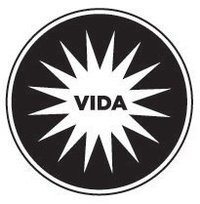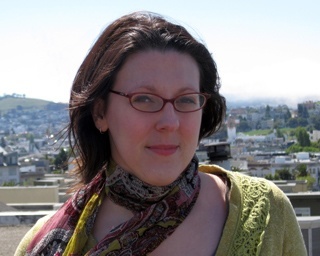 The literary world has a long way to go in terms of gender representation. There is little balance in publications between men and women, let alone people who reside elsewhere on the gender spectrum. In August 2009, poets Cate Marvin and Erin Belieu founded VIDA: Women in Literary Arts; then, in 2010, they began “the Count.” The Count, published so far for 2010, 2011, and 2012, looks at several prominent publications and measures the proportion of men and women book reviewers and authors reviewed, or, in some cases, the overall representation of men and women in those publications.
The literary world has a long way to go in terms of gender representation. There is little balance in publications between men and women, let alone people who reside elsewhere on the gender spectrum. In August 2009, poets Cate Marvin and Erin Belieu founded VIDA: Women in Literary Arts; then, in 2010, they began “the Count.” The Count, published so far for 2010, 2011, and 2012, looks at several prominent publications and measures the proportion of men and women book reviewers and authors reviewed, or, in some cases, the overall representation of men and women in those publications.
The numbers are startling. Although the focus is, significantly, on book review, the inclusion of Granta, Poetry, Tin House, the Paris Review, and The Threepenny Review in the Count gives some picture of what’s going on in the world of literary magazines, at least at the top.
 One person who has been inspired to action by the VIDA count is poet, editor, and educator Laura E. Davis of Weave Magazine. As an editor herself, she knew that there was some truth to the idea that fewer women were being published because fewer women were submitting in the first place. What if, she thought, a group of female-identified people submitted work en masse? If there were more equal representation in submission, editors would have to take responsibility for the gender imbalance in publishing.
One person who has been inspired to action by the VIDA count is poet, editor, and educator Laura E. Davis of Weave Magazine. As an editor herself, she knew that there was some truth to the idea that fewer women were being published because fewer women were submitting in the first place. What if, she thought, a group of female-identified people submitted work en masse? If there were more equal representation in submission, editors would have to take responsibility for the gender imbalance in publishing.
Laura began her non-profit Submission Bombers in May 2012. Rather than blasting indiscriminately into the void, Submission Bombers works with interested editors to promote parity in their publications. So far, several literary journals (including PDR ) have volunteered to be “bombed” by women contributors.
We recently had the opportunity to talk with Laura about the project. Here’s what she had to say.
PDR: How did you decide to start Submission Bombers? (Was there an inciting incident, did you start off as an activist in other fields, did you work from statistics, anecdotally, from your gut, etc.)
Laura Davis: When the VIDA Count first came out, many editors responded by saying that they got fewer submissions from women, so that must be why there was such an imbalance. That response really frustrated me – they were shirking all responsibility. I did, however, understand that they were right to some degree. I’m the founding editor of Weave Magazine, and our first few reading periods were dominated by submissions from men. It wasn’t until we made it clear we wanted to hear from women, and eventually other marginalized voices, that we saw more diversity in our submissions pool. While I couldn’t force these editors to see how they were affecting their submissions, I could rally a lot of writers. I eventually shared the idea in a post on Facebook mid–2012, and there was enough initial interest and support that I decided to create a group.
PDR: When you approach editors about doing a submission bombing, how do they react? Have editors been more or less responsive than you expected?
LD: For the most part, editors have been very responsive and willing to get involved. Some editors simply respond with their submission guidelines and encourage the group to submit. Others want to be more involved, join the group, answer questions that arise during the submission bombing. When we first began, I was stunned by how many editors wanted to get involved. But many of them saw it as a way to get publicity, which is true. We’re also an audience. We have a public group in which we share our successes, so the journals gain a lot of readers by participating in a bombing. In the beginning we had a lot of new journals.
PDR: What have you accomplished so far? What are your future goals?
LD: Accomplishments include lots of publications for group members. Besides sharing successes in the public group, people message me with stories, [or] to say thank you, which is such a joy. One woman submitted an essay to a publication’s contest, won the contest, and was nominated for a Pushcart Prize. She later told me that she never would have gotten the courage to submit without the group. That’s our biggest accomplishment, and it’s one I didn’t predict. We took a lonely, isolated process and made it communal. There’s so much support in the group, a lot of resources being shared, calls for submissions, questions about how to approach different situations with editors or publications. Our collective knowledge is really powerful, especially for new writers.
As far as future goals, I’m just happy to continue the group. I’d like to see similar groups popping up here and there. I think that a group can only get so big before people feel lost, and we miss that community-driven experience. There’s no reason why we can’t have lots groups that do this kind of work. Writers have to do their part in the process so that editors can do theirs.
